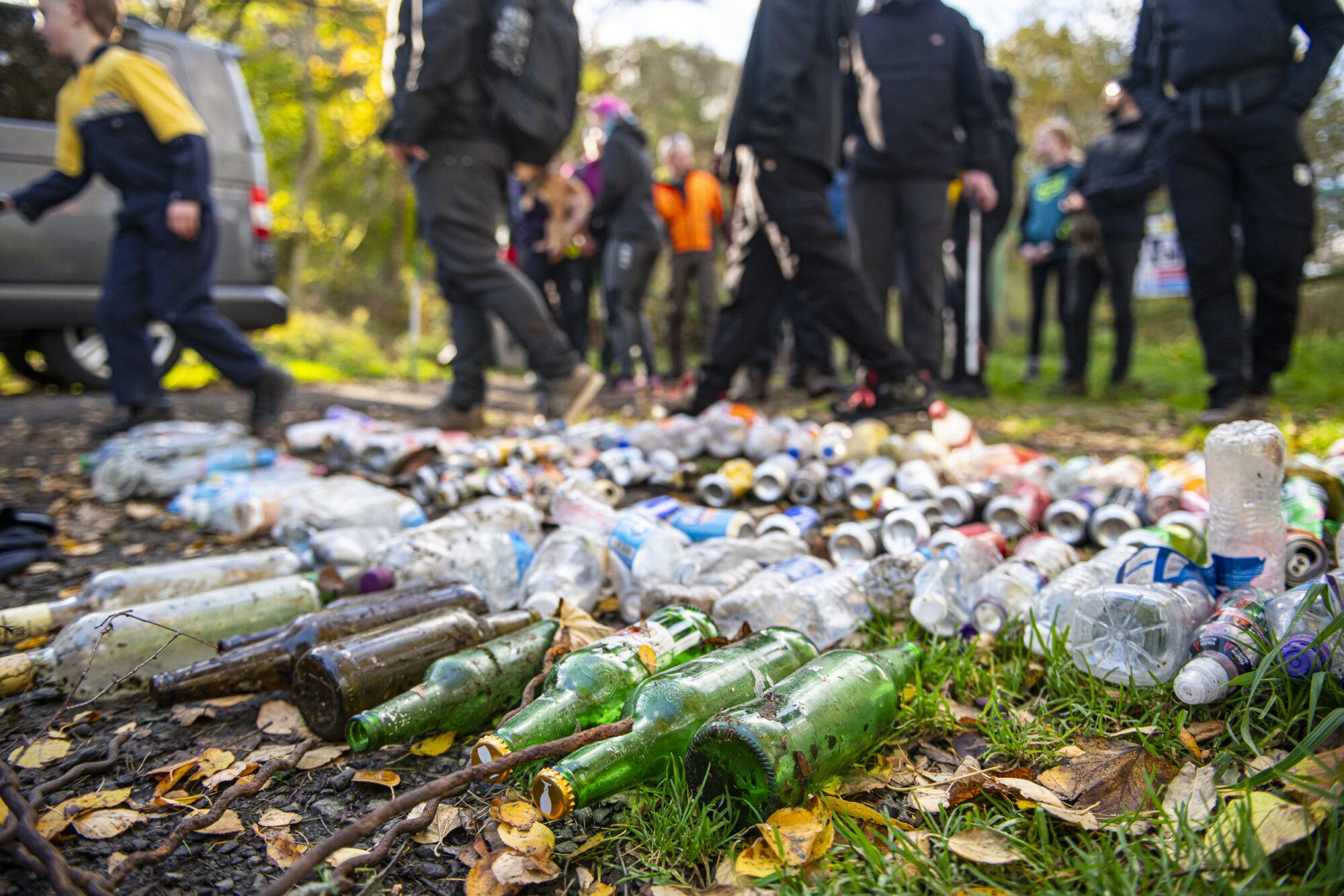Trash Free Trails’ New Report says Uncollected litter on UK Public Rights of Way could provide £1.5 million boost to protect green spaces under Packaging Regulations.
New research from Trash Free Trails estimates that there are 40% of the over 9.2 million items of single-use pollution on our public rights of way fall under the Extended Producer Responsibility (pEPR) scheme. This scheme sees packaging producers pay fees which are then redistributed to Local Authorities.
Whilst it’s a step in the right direction, the pEPR scheme has some holes that overlook trail-based SuP.

KEY STATS
- New research from Trash Free Trails estimates that there are over 9.2 million items of single-use pollution (litter) on UK public rights of way
- 40% of this litter eligible under Extended Producer Responsibility (pEPR), which sees packaging producers pay fees which are then redistributed to Local Authorities
- Currently no funds from pEPR are dedicated to bin and ground litter, or to non-Local Authority land managers (including National Parks)
- Trash Free Trails identify this as a blindspot, stating 4.7 million items of eligible trail pollution could be worth up to £1.5 million for litter picking and ecosystem enhancement
- Top 5 most prevalent pEPR-eligible brands found on UK trails have combined profit of over £10 billion between 2023-24.
- Over half a million items of litter removed by Trash Free Trails volunteers since 2019, clearing over 14,000km of trails
Current Extended Producer Responsibility legislation, which sees packaging producers take financial responsibility for the full lifecycle of their products, is overlooking green spaces.
Today a new Report from Trash Free Trails recognises the potentially immense benefits of the policy, but shines a light on the further £1.5 million that could protect and enhance green spaces across the UK.
Built on the Polluter Pays Principle without Accounting for Pollution
The UK’s Extended Producer Responsibility for Packaging scheme was hailed by environment ministers as core to ‘cleaning up Britain’ (Gov UK, July 2025) but under current guidelines Local Authorities are unable to spend any of the funds – raised by charging packaging producers a fee for the weight and volume of single-use products -on tackling ground and bin litter.
Trash Free Trails believe this goes against the ‘Polluter Pays’ principle that the Scheme is based on, by not enabling Local Authorities to tackle pervasive levels of single-use packaging left in public green spaces. They also point out that by not allowing other land management bodies and groups (including National Parks and ENGOs) to access the funds raised, pEPR isn’t going as far as it could to eradicate packaging pollution across Britain.

Calculating a ‘Trails Top Up’ for pEPR
In this year’s State of Our Trails Report, Trash Free Trails combine their ongoing research into the impacts of litter on paths, parks, and woodlands with pEPR fee calculations to expose the hidden cost of packaging pollution in places outside Local Authority management. Their proposed ‘Trails Top-Up’ calls for an uplift in funding so the Scheme can finally cover all the environments that packaging pollution reaches.
At an estimated £1.5 million, Trash Free Trails point out that this equates to a mere £388 for each registered business already paying pEPR fees. Given the combined profit of the 5 most prevalent pEPR-eligible brands is £10 billion, the Trails Top Up reflects a tiny addition that could have an invaluable impact.
“For the multi-national producers behind the single-use packaging found on our trails, the cost of our proposed Trails Top Up would amount to little more than loose change,” says Trash Free Trails CEO Dom Ferris. “But for those of us living with the impacts of this pollution every day, that same contribution would be transformative – protecting and restoring the trails, woodlands, and communities that depend on them.”
“Just as pEPR fees are based on the costs local authorities face to manage packaging waste,” Ferris continues, “we’ve applied the same principle to the work carried out by small NGOs and volunteers who remove, report, and record these items. For the first time, we’ve also drawn inspiration from the marine plastic movement to quantify the ecosystem-service – or natural capital – losses caused by this packaging pollution on land.”
“Compared with the £1.1 billion already raised through the wider pEPR scheme, the Trails Top Up we’re calling for is a modest but fair addition. Yet its impact could be profound -safeguarding our parks, woods, and trail networks for generations, and strengthening the social, emotional, and environmental benefits they offer across the UK.”
As well as sharing their Report with PackUK, the body set up by DEFRA to manage the pEPR Scheme, Trash Free Trails have sent ‘Trails Top Up’ invoices to the 5 most prevalent brands of packaging found on UK Trails, with the likes of Cadbury’s, Walkers and Haribo alone responsible for up to 90,000 items of litter. Trash Free Trails intend to ‘chase’ their invoices, emphasising the role packaging producers can also play in enhancing the Scheme’s provision.
“This isn’t about pointing the finger and saying this policy is wrong,’ Dom Ferris says, ‘It’s about maximising its potential, and ensuring our trails and wild places, which are so valuable to the British public, benefit from the scheme too”.



